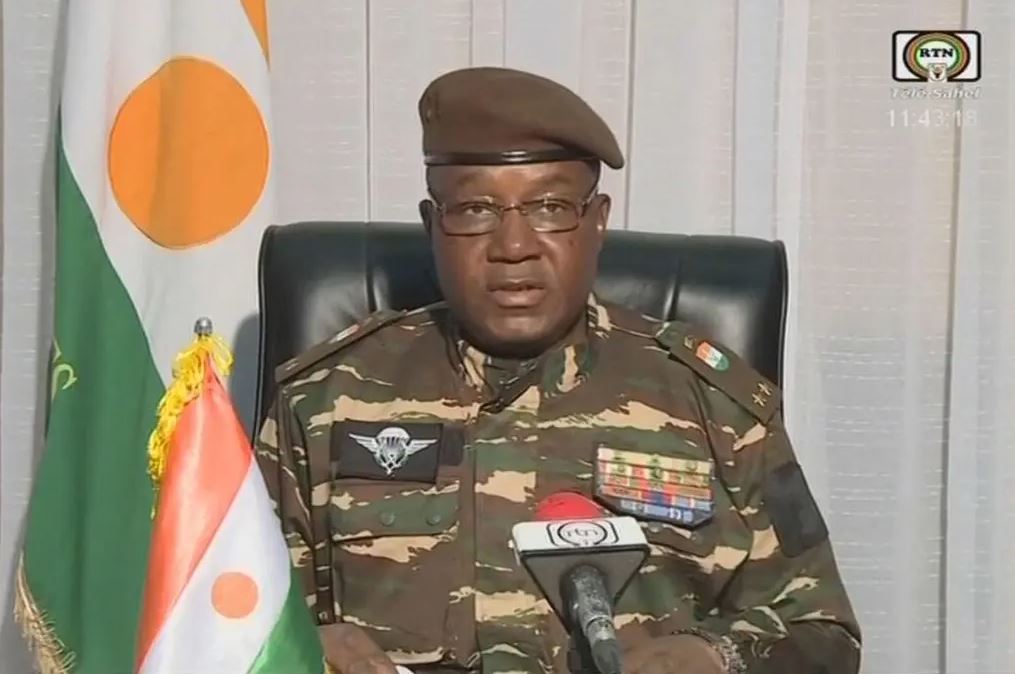Two days after his military unit imprisoned the democratically elected president and put the future of a major Western partner in the area into limbo, the commander of Niger’s presidential guard claimed the leadership of the West African nation in a televised statement on Friday.
Located in the Sahel, an arid area south of the Sahara that has seen increased insecurity due to the deteriorating impacts of climate change, political instability, and military insurgencies, is the impoverished nation of Niger, rich in uranium. There are about 1,100 American forces in Niger, along with two drone bases. More than 1,500 soldiers from France, the former colonial power.
Niger’s military takeover follows Burkina Faso, Guinea, and Mali as the sixth in West Africa in less than three years, and it might derail regional attempts to combat insurgencies by organisations connected with Al Qaeda and the Islamic State.
Niger is experiencing its sixth coup since winning independence from France in 1960, and it might be devastating to the country’s young democracy. It was just a few short years ago that President Mohamed Bazoum peacefully succeeded his predecessor as president.
In interviews over the course of the previous two days, an assistant to Mr. Bazoum and experts said that the president had planned to dismiss General Tchiani as the chief of the presidential guard.
General Tchiani, on the other hand, said that Mr. Bazoum’s ouster was the result of his bad handling of the economy and the war on terrorists.
He thanked the United States and Europe for their “support of our external partners” but criticised Niger’s leadership for not working with the military juntas in Burkina Faso and Mali, which have become closer to Russia in recent years.
Later on Friday, a military official declared the suspension of Niger’s Constitution and the transfer of administrative and legislative powers to a new transitional body. The officer said that General Tchiani will head the organisation in his new role.
With a population of 26 million, the UN ranks Niger as the third poorest nation in the world. However, as one of the remaining democracies in the area, Niger has been a favourite beneficiary of humanitarian help and Western support.
It seems like these initiatives will fizzle out in the future. Mr. Bazoum’s predecessor, Mahamadou Issoufou, appointed General Tchiani, then 59 years old and a distinguished and prominent politician, to lead the presidential guard in 2011.
In 1985, General Tchiani enlisted in the Nigerien armed forces. He has since participated in UN peacekeeping operations in the Democratic Republic of the Congo, the Ivory Coast, Nigeria, and Sudan. He was nominated general in 2018 by Mr. Issoufou, who remained in power until 2021 when Mr. Bazoum entered office despite being suspected of engaging in a coup attempt in 2015.
If diplomacy fails to reverse the military takeover in Niger, a senior White House spokesman, John Kirby, said Friday that the United States might discontinue financial assistance and security cooperation with the African country. The United States and its allies, he added, were “doing everything we can” to keep Mr. Bazoum in power in Niger.
Niamey, the capital, remained relatively peaceful after General Tchiani’s televised statement, with many stores remaining open but banks shuttered. The coup’s backing generals had shut down the country’s borders, banned any political activity, and instituted a curfew for the evenings.
Burkina Faso’s prime minister visited Moscow a few months after a military dictatorship, and military commanders in Mali have teamed up with the Russian Wagner mercenary organisation to battle Islamist terrorists.
Western nations and international organisations may be profoundly affected by a change in alliances. To facilitate the December departure of its 13,000-strong peacekeeping mission from Mali, the United Nations had intended to utilise Niger as a logistics base. About 15% of the uranium used in France’s nuclear reactors comes from Niger’s mines.
For his ability to balance a robust military response to security problems with development initiatives and relationships with Western nations, Mr. Powell has dubbed Mr. Bazoum’s leadership one of the finest in the area.
He said that while civil order broke down in Burkina Faso and Mali, Niger seized the opportunity to improve relations with the West. But he said that Western nations helping Niger have ignored long-standing problems in the country’s armed forces.

